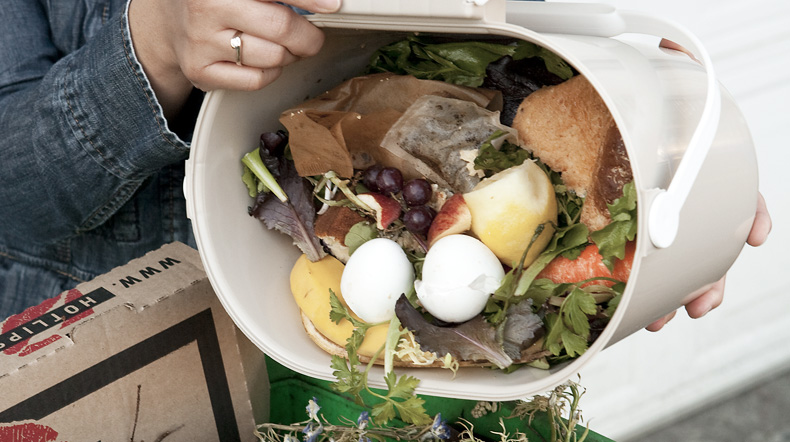A golden opportunity ripe for the taking
By Dominic Salmon, 3R Group Business Development – Sustainable Solutions
Did you know New Zealand households throw away some 157,000 tonnes of food each year? That’s enough avoidable food waste to fill 271 jumbo jets and is worth somewhere in the region of $1.17 billion.
This doesn’t include the food waste generated outside the home through the production cycle.
According to World Wildlife Fund, humans waste one of every three food calories produced worldwide. As one of the major horticultural areas in New Zealand this is a particularly relevant issue in Hawke’s Bay.
There was a common refrain at our dinner table along the lines of, “there are starving children in Africa, don’t waste your food”. And while this is a serious consideration (WWF estimates those same wasted calories are enough to feed three billion people — more than three times the total number of malnourished globally), the impact of that waste is far broader.
Wasted resources
Food production is a vast industry and the pressure on resources to create it is intense. Here in New Zealand, we hear of the growth of Auckland housing which is threatening some of our most productive horticultural land around Pukekohe. While in other areas water is the issue – whether protecting it from the negative effects of food production or having enough of it available to support critical food production.
Overseas, land converted to food production threatens habitats and impacts the climate in many ways. And it’s not just land and water but chemicals, freight, energy, packaging and more. Wasting food means wasting all these.
Mighty methane
When organic material breaks down in landfill it does so anaerobically (without oxygen) which generates the potent greenhouse gas methane. It’s now a relatively well-known fact that methane is a much more potent global warming gas than CO2 even though it doesn’t last as long in the atmosphere.
Here in Hawke’s Bay alone, about 50% of our household waste is organic matter. This is contributing to New Zealand’s emissions footprint from landfill, which is largely made up of organic matter. Getting our organic matter out of the landfill is an obvious and achievable target for climate action. It should be acknowledged that the Omarunui Landfill (between Swamp Road and Omarunui Road) is doing some great work in landfill gas capture including energy generation… but that’s not the point, the need to keep organic waste out of landfill is!
Budget busters
The Love Food Hate Waste campaign estimates that simply by making sure we actually eat the food we buy New Zealand households could save $500 each year. With many households facing significant challenges to balance the books, there are lots of handy tips from the campaign to help avoid this drain on our pockets.
Keeping your bread in the fridge or freezer to stop mould, storing many fruits in the fridge, doing your shopping with a list to avoid purchasing too much of the wrong thing and making the most of leftovers all make an impact on food waste.
Rich pickings
We all know, composting is nature’s way of replenishing the soil and there are many businesses focussed on turning our organic waste into nutrient rich matter. Aside from replacing nutrients, compost improves soil structure, moisture retention and increases the amount of oxygen available to plants and earthworm activity. Plus, as those who already compost know, there is nothing more satisfying than using rich dark compost created from your own food scraps to feed your flowers or veggies.
The fertility of our Heretaunga Plains was created through millions of years of flooding and the depositing of marine flora and fauna and other organic materials. The use of locally produced compost is a circular solution which can ensure that fertility is not lost.
So, what’s being done to help?
Governments, both central and local, are recognising the need to bring about change to address this issue. This year’s Waste Minimisation Fund had an equal emphasis on organic waste and construction and demolition waste (another growing problem at an estimated 40-50% of waste to NZ landfills).
Councils are also taking action with several having introduced food or organic waste bins as part of their kerbside collections. Many also offer subsidies for compost bins.
Hawke’s Bay is well positioned in this regard as the end market for composters (the horticultural industry) is right in our own back yard. Combine this with the increasing interest in organic farming practices and we have little excuse not to create a circular economy for organic waste.
Alongside this, we have a huge variety of local charities working hard to divert food from hospitality and retail, including our very own Nourished for Nil. Statistics from this organisation show they rescued nearly 1 million kg of food in 2020, a rather staggering amount. Social media Is also playing a part with The Magic Beans local Facebook page providing the Hawke’s Bay community with the ability to share crops and produce.
Addressing organic waste may be messy, difficult and sometimes put in the ‘too hard basket’ but the benefits make it worth the effort.







